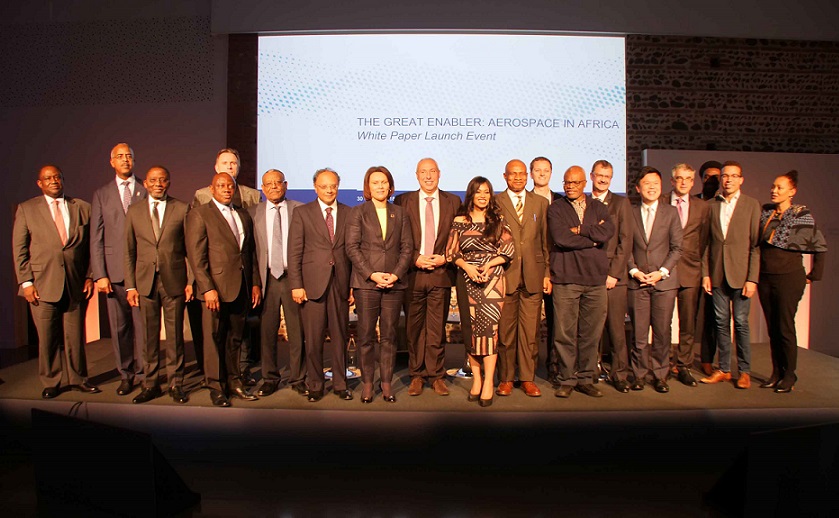
Airbus releases report on the impact of aerospace technologies in Africa
Airbus today released THE FANTASTIC Enabler: Aerospace in Africa – a White Paper on the role of aerospace technologies and their effect on socio-economic development in Africa.
The extensive report talks about how different segments of the can address a core group of challenges on the continent by: increasing usage of healthcare; enhancing food security by making African agriculture more sustainable and competitive; promoting education, innovation and training; empowering businesses with innovative solutions and products; and breaking barriers to the movement of individuals and goods across Africa down.
The report premiered at a particular summit convening African government officials officially, policymakers, business leaders, entrepreneurs, intergovernmental bodies and multilateral development organizations in Toulouse, France.
“The aerospace industry offers answers to a lot of the socio-economic challenges Africa is facing in relation to sustainable development. A paradigm shift from considering aerospace being an isolated industry to an integral enabler of socio-economic change is essential to understand its benefits for a booming future. That’s what this White Paper is aiming at, by highlighting various ways where aerospace technology can support economic and social development in Africa,” said Mikail Houari, President Airbus Africa Middle East.
The white paper analyses the role of aerospace technologies in sectors with the best possible effect on social and economic development including manufacturing and industrialization, civil aviation, agriculture, healthcare and humanitarian assistance:
• On industrialization and manufacturing, many African countries are final consumers in the global aerospace value chain. Joining the ranks of producers in this value chain is challenging for most however, not impossible. The types of Africa’s current leaders in aerospace – South Africa, Morocco and tunisia – demonstrate the complexities but additionally the opportunities for African countries to build up aerospace industrialization and manufacturing capacity. Key among these opportunities is Africa’s potential demographic dividend, which is achieved by buying its youthful and techno-savvy population increasingly.
• In the aviation sector, the main element question remains how exactly to connect visitors to goods and markets in a faster, cheaper and much more efficient way to be able to maximize the sector’s role being an economic engine and a car for greater integration in Africa.
• Agriculture may be the most consequential pillar of the continent&rsquo perhaps;s sustainable development. However, despite employing a lot more than 60 percent of Africa’s population, the sector contributes no more than 15 percent of the continent’s GDP as underlying challenges persist. Aerospace technology such as for example precision farming may potentially reverse this example by enabling farmers to create more with less.
• Usage of healthcare is really a challenge for most rural populations still. While building on the prevailing technologies in the sector – such as for example air ambulances – new technology will further change the dynamics of usage of medical emergency and care response with regards to quantity, data and distance collection.
The report also stresses the necessity for clear government policies to harness the charged power of aerospace technology, concluding with key tips about human capital development, financing and partnerships.
The research was predicated on 30 in-depth interviews with a cross-section of stakeholders including: African Union Commission, US Economic Commission for Africa, African Development Bank, US World Tourism Organization, World Bank, International Finance Corporation, Kenya Red Cross, International Air Transport Association
African Airlines Association, South African National Space Agency, Nigeria’s National Space Development and Research Agency, Airbus Bizlab, Farmerline, Air Mauritius, Air Seychelles, Congo Airways, Fastjet, Overland Airways, Aerosud, Denel Aerostructures, Lazard, MARA Group, One2Five Advisory, Ag.Aviation Africa, ch-Aviation
African Airlines Association, South African National Space Agency, Nigeria’s National Space Development and Research Agency, Airbus Bizlab, Farmerline, Air Mauritius, Air Seychelles, Congo Airways, Fastjet, Overland Airways, Aerosud, Denel Aerostructures, Lazard, MARA Group, One2Five Advisory, Ag.Aviation Africa, ch-Aviation